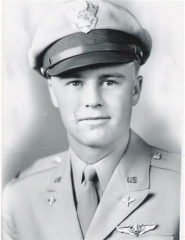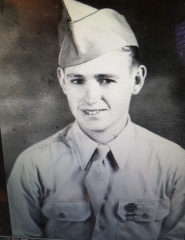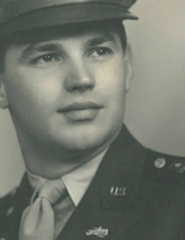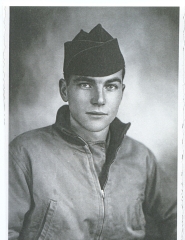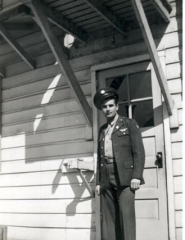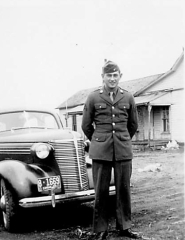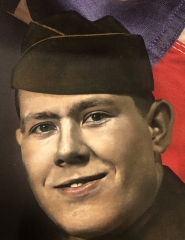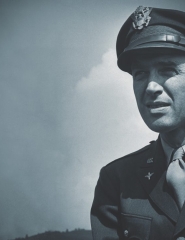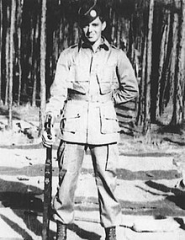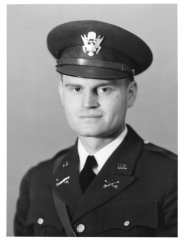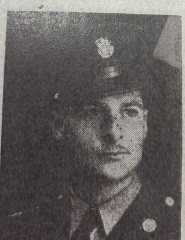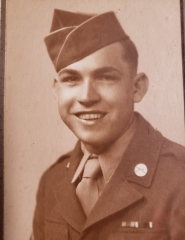Comments of Colonel Ralph B. Praeger, Jr. (USAF Ret.) At Memorial Day Ceremony Calflin, Kansas May 30, 2016 Today we gather with thousands of our fellow citizens across the country to recognize Memorial Day. A day set aside to honor those who answered the call to defend their country and paid the ultimate sacrifice in doing so. Memorial Day was created in 1868 just after the Civil War. On this day, all Americans are called upon to decorate the graves of their fallen countrymen and recall the sacrifice they made for the United States of America. Since 1775, between 1.2 and1.8 million of our fellow citizens have died in service to their country. Each of their stories is unique and inspiring. We honor them all -- particularly the 17 sons of Claflin whom we lost in WWII and Vietnam. However, today we will show our honor by focusing on just one of these fallen Americans. A man who grew up just a little over a mile from where we are now gathered. My father, Major Ralph B Praeger. As most of you know, Major Praeger grew up on a very successful Kansas farm. There he learned the importance of individual responsibility, the necessity of hard work, and developed a keen sense of duty. After graduating from Claflin High in 1932, he devoted his time to obtaining an appointment to West Point. He was motivated by a personal desire to try another kind of life other than farming. To increase his chances of obtaining an appointment, he attended college classes in Sterling. Finally, two years later, his dream was fulfilled. He received a letter from his Congressman informing him that he had secured his long sought appointment to West Point. He entered West Point in the summer of 1934. Despite all of the commentary concerning the difficulty of the training and academics at West Point, he found the intense schedule a significant relief from the dawn to dusk farm labor he did as a boy. I had the opportunity to meet a large number of his West Point class mates. All of them related to me how he repeatedly reminded them that the demands of the Point were much less than the demands placed on a farmer. He told them that he felt he was on an extended vacation. June week in 1938 at West Point was a very significant for my Father. He married my Mother in the Chapel at West Point, received his bachelor of science degree and was appointed a Second Lieutenant in the Army. He then pursued a new dream. He desperately wanted to be a pilot. Unfortunately, he was unable to fulfill this dream because of a depth perception problem. Fate then intervened. The Army then sent him to the Presidio in San Francisco. This was a holding position for his ultimate assignment to the 26th Cavalry, Philippine Scouts at Fort Stotsenburg , Philippine Islands. He arrived there in 1939. His first job was officer in charge of the motor pool. There he used his farm experience and for the first time was able to get all of the aging vehicles in operating condition. This entailed him to do most of the repair work personally because his Philippine Scouts had little knowledge of mechanics. He taught them as he worked. This illustrated one of his most noteworthy traits -- he considered no job beneath him. At this point, we are going to turn to my Dad's accomplishments in WWII. Before doing so, I need to make a side comment. He was fortunate to have serving as his deputy, Captain Thomas S. Jones. Tom Jones was critical to the success of the WWII operations as were three other Americans and the Filipinos who joined their operation. Tom was the sole American survivor. My Father would be embarrassed today if he knew that I had confined my remarks to only him and failed to recognize the significant contributions of his colleagues. As the war clouds gathered in 1940, then Captain Praeger was appointed the commander of Troop C, 26 Cavalry, Philippine Scouts, stationed at Fort Stotensburg north of Manila. Life was good. Mornings were consumed with military affairs and training. The afternoons were basically free but usually filled with sporting activities and the evenings were consumed with social activities -- a life style similar to that of a Colonial army unit. All of that changed abruptly on the morning of December 8, 1941. My Father received his orders to return to the United States early that morning, commenting to Tom that the orders were not worth the paper upon which they were written. A short time later, they learned that the Japanese had attack Pearl Harbor. Soon the bombs began falling around them at Clark Air Base and Ft. Stotsenburg. War had come and their lives were about to change drastically – challenging both to the absolute limits of human survival. They were just 27 years old. As the Army began preparing for the certain invasion of the Philippines by the Japanese, Troop C was dispatched to protect Baguio, the summer capital of the Philippines. Baguio is located high in the mountains about 90 miles north of Ft. Stotsenburg. On December 18, Troop C departed its home base by bus with a strength of about 100 men. For about two weeks, they prepared to defend Baguio. However, the Japanese Army decided to bypass Baguio staying in the lowlands between Manila and Baguio. Troop C and the other US forces in Baguio were now cut off from the rest of the US and Philippine forces. Disgusted with the leadership in Baguio – particularly a decision to destroy all of the available supplies instead of hiding them for potential future use – and anxious to carry out operations against the enemy – my Dad requested permission to strike out on his own. Keep in mind, by making this decision; he was going to be operating entirely upon his own without logistical support or potential for reinforcement. He would be solely dependent upon the equipment and food he and his men could carry or obtain from the land and its people. During the next two weeks, they walked over 115 miles north to the Cagayan Province where on January 12, 1942 they attack the Japanese Army Garrison near Tuguegarao. The attack was a success and inflicted heavy casualties upon the Japanese. Tom told me that he believed that the attack on Tuguegarao was the first offensive operation against the Japanese after Pearl Harbor. During the next few months, Tom and my Father organized their forces, set up headquarters high in the unmapped and rugged mountains near Kabugao, collaborated with the Provence governor, Mr. Adduru, and established contact by radio with Corregidor, Gen McArthur’s headquarters. Troop C then became known as the Cagayan/Apayao Force – CAF for short. Their primary mission was to collect intelligence. At the same time, they were working with Gov. Adduru to gain control of the northern part of Luzon. To accomplish this, they established a working government complete with a judicial system and a monetary system which operated until mid1943. In early May of 1942, Bataan fell and the US surrendered its forces in the Philippines. My Father and Tom chose not to surrender justifying their decision on a technicality -- the order they received was not specifically addressed to either of them. Now they were truly on their own. Hope was fleeting. Despair was always present. Good health was constantly difficult to maintain. The future was quite uncertain. But Ralph Praeger was not common -- certainly not by today’s standards. Duty, Honor, Country were part of his very core. He chose to continue the fight and to continue to serve his country. This was his duty. The Scouts of Troop C were not about to abandon it or the Filipino people. Writing in 1946, Tom Jones wrote the following profound words which, to me, sum the emotions they must have been having at the time: Quoting Tom. “Defeat is a terrible thing. Its full significance cannot be grasped merely through the material losses which are part of it. It brings down with it the whole structure about which a nation or an army has been built. It subjects men to the most severe of moral tests at a time when they are physically least able to meet them. Defeat brings to light weaknesses heretofore unsuspected or ignored so that everyone sees them. Respect is replaced by contempt. Loyalty disintegrates. On the battlefield fear is accepted as natural and passed over, but the failings in character which defeat exposes cannot be passed over.” Tom continues. “Leadership, in part, may properly be regarded as an acquired technique under normal circumstances, but it must be rooted in character if it is to survive a major disaster. For it is only the man of character who has the courage to stand fast when everything is crashing around him. He alone possesses the spirit of self sacrifice which is necessary to keep alive the loyalty of his men when disloyalty becomes an everyday occurrence. He alone has the impelling sense of devotion which causes him to discharge his duty as he understands when the chain of command has been destroyed, in a situation without precedents, or when others counsel him to the contrary of what he believes is right. Under normal circumstances, it is difficult to discern the true character of a man, but in the midst of defeat character cannot be concealed. ” "It was the good fortune of Troop C, that its commander was a man of character. He held his men together when he had nothing to offer them except privation and danger. He taught them by his own example the lesson of duty." Close quote. During the next 15 months my Dad maintained his operation. In September 1942 they were able to rebuild their radio and establish contact with Australia and the US. This was the only radio in the Philippines which was able to contact the outside world. They continued to maintain the government operations they had established with Gov Adduru, collected intelligence, and conducted minor operations against the enemy. In the meantime, guerrilla leaders throughout the Philippines were being captured. In May of 1943 Gov Adduru was caught. In July 1943, the following message was sent to Troop C. Quote: "To Praeger; From MacArthur" "From General MacArthur to the surviving members of C Troop,26th Cavalry: Soldiers of C Troop 26th cavalry." "I gratefully acknowledge and commend the invincible spirit that has held your little band together and permitted you as a unit to so long sustain military operations against the enemy in conquered territory. By so doing you have enshrined your Troop Guidon in glory and set a brilliant and inspiring example for soldiers everywhere to emulate. To the ill and depressed among you I trust a merciful providence will succor and protect you and instill in your hearts new courage and faith and hope in the firm knowledge that your struggle and sacrifice shall not have been in vain. I commend your surviving officers Praeger, Jones, Needham and Furagganan for high qualities of leadership, resourcefulness and unswerving devotion to duty." Close quote. The end of the operation was near -- lasting only until August 30th for my Dad and September 8th for Tom. When Captain Takahashi captured my Dad, the Japanese officer came to attention and remarked, "A very brave thing you have done for your country." With their capture, radio contact with the Philippines was lost for many months. Both men then endured the harsh treatment in various Japanese internment camps -- lasting for more than a year for my Dad and nearly two years for Tom. My Dad was executed by the Japanese for war crimes against the state of Japan in late 1944. He was just 30 years old. Some historians have called the CAF the most successful guerrilla operation in the Philippines. While it did not survive the occupation, it did provide the Filipino people in their area of operation with hope and a functioning government for the majority of the WWII. For his heroic acts, Gen. MacArthur awarded my Dad two Distinguished Service Crosses, the Nation's second highest award for valor. One to recognize his heroism, leadership, planning and execution of the raid on Japanese Army Garrison near Tuguegarao, and the second, awarded posthumously, to recognize his valor and accomplishments as a Guerrilla leader. In addition, he was awarded the Legion of Merit, at that time the nation's highest non combat medal, the Bronze Star, the Combat Infantryman's Badge and the Purple Heart. He was also honored by having the Army Reserve Center in Great Bend, an historic barracks building at Fort Riley, and VFW Post 8668 dedicated in his name. In December 1945, my grandfather received a letter from General of the Army, Douglas MacArthur. The bulk of the letter is probably the text of condolence letter sent to the families of many fallen soldiers. However, Gen MacArthur added a final sentence which many consider quite significant and separates it from a routine letter of condolence. Quote: "In your son's death I have lost a gallant comrade and mourn with you." Close quote. To the best of our knowledge, my Dad's remains were never identified. We believe he now rests in one of the graves marked as "Unknown" in the American Cemetery in Manila, the Philippines. Sherry and I visited the Cemetery in February. It is absolutely beautiful and a very fitting location for Dad's remains. After lamenting about the societal differences between the American Society of the 1940s and 1950s and the Society at the end of the 20th century , Bernard Norling relates the following in his closing paragraph of his book "The Intrepid Guerillas of North Luzon": Quote 'To such a society the brave men of Troop C, 26th Cavalry and the CAF constitute a hearting contrast. No matter how unsuccessful they might have been, in the short run, all of them risked their lives -- and most of them gave their lives -- to do their duty. Their deeds deserve to be recorded and their example displayed to a later age, many of whose members can scarcely imagine the meaning of the words valor and sacrifice. Societies and nations live on their memories quite as much as do individuals. Those who leave behind them examples of responsibilities accepted, performance of duty embraced and blood shed for worthy causes may live only brief lives, but they enrich the national legacy for generations to come." Close quote In closing, recall my father was but one of Claflin's sons who answered the Nation's call to duty and paid for this service with his life. All of them deserve our deepest gratitude and respect. The price of freedom is often overlooked as we live our daily lives. If you only take one thing away from this ceremony today, please remember that more than a million Americans have given their lives to ensure that we can live in freedom and peace and pursue the way of life we all now enjoy. Thank You
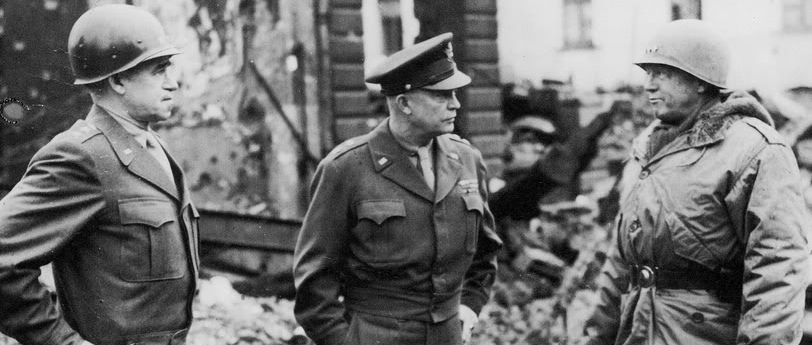
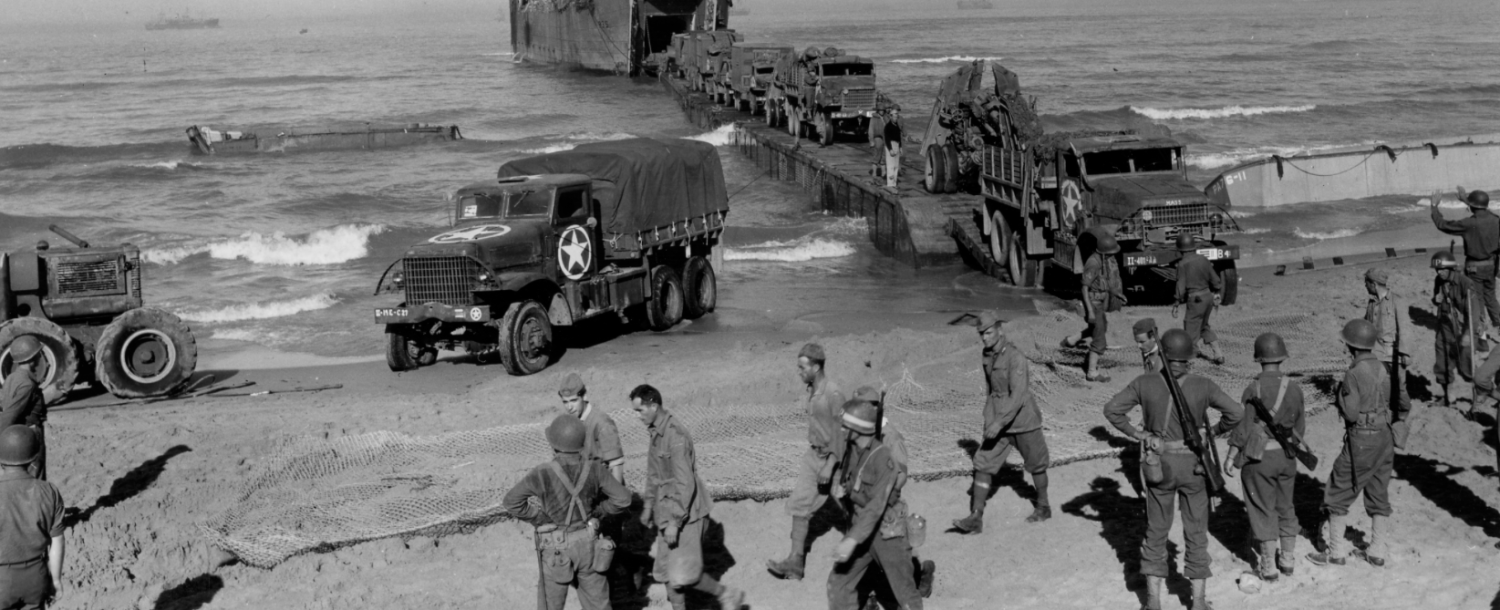
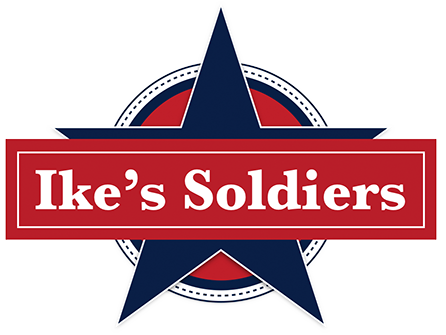
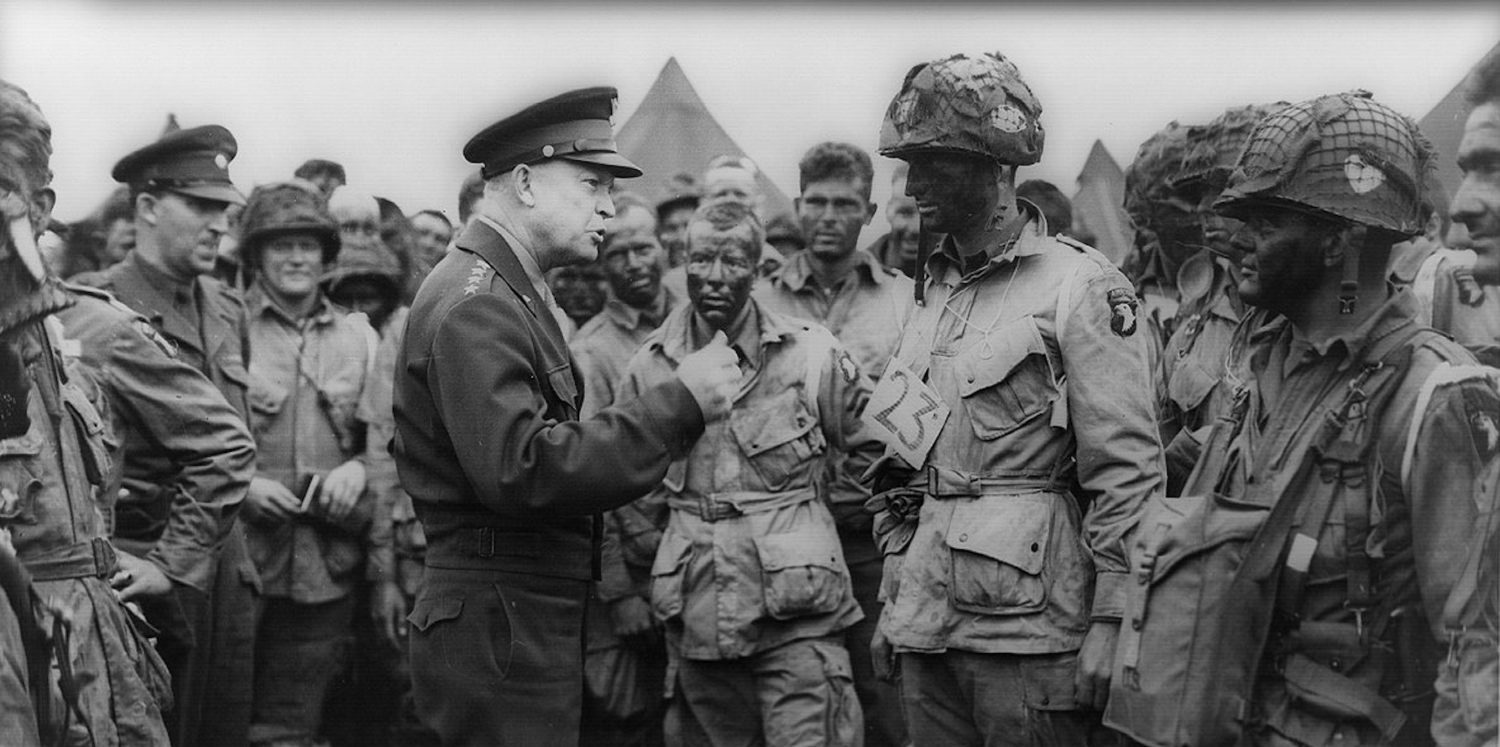

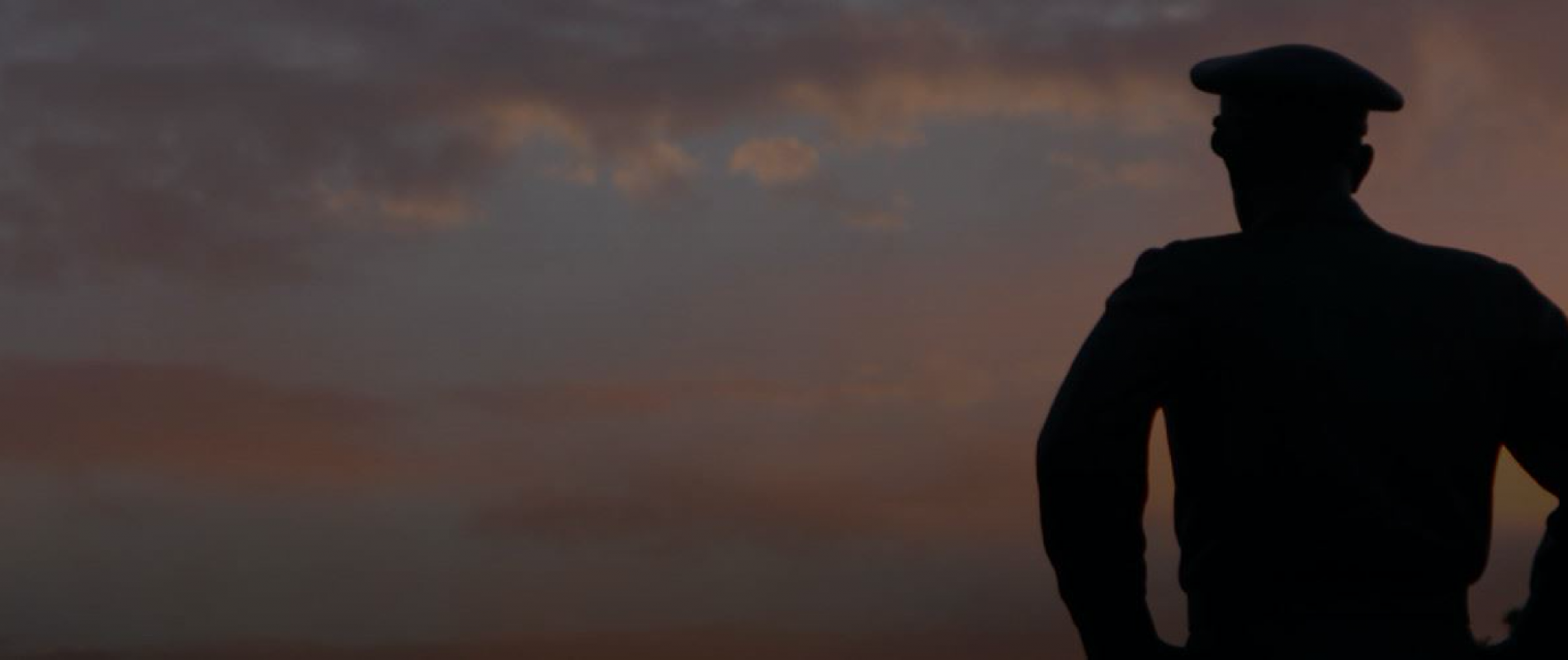

 Eisenhower Foundation
Eisenhower Foundation
